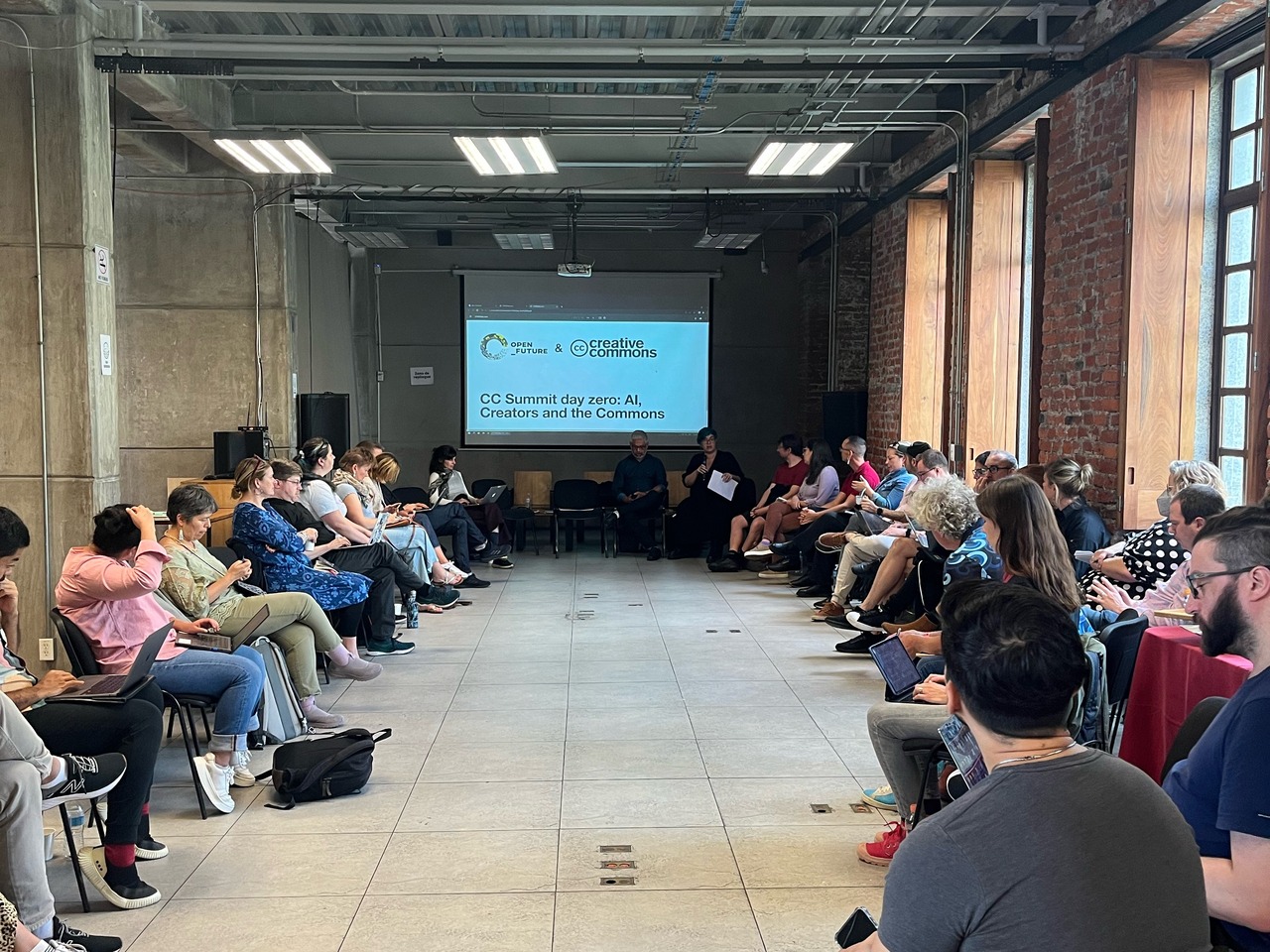Creative Commons Global Summit 2023
The Creative Commons Global Summit 2023 took place in Mexico City between 3 and 6 of October. This year’s theme was “AI and the Commons,” an issue that formed a core one for our work last year. The Creative Commons network is also one of our key open movement stakeholders, and the Summit is an opportunity to discuss shared activities and strategies. Alek and Paul attended the Summit on behalf of our organization.
Day 0 workshop on AI, Creators, and the Commons
On the first day of the conference, together with Creative Commons, we organized a full-day workshop on “AI, Creators and the Commons.” The event brought together thirty legal scholars, experts, and activists from around the world. The goal was to discuss the impact of generative ML on creative practices and the commons as they play out across the different jurisdictions.

During the first part of the meeting, we looked at relevant copyright laws – including various exceptions and limitations, fair use, and fair dealing mechanisms – that are in place in different parts of the world. The session demonstrated large differences between jurisdictions, from regions with provisions that enable actors to freely train AI to those with no exceptions that enable text and data mining research.
In the second part, the participants discussed how emergent machine learning technologies and services impact creators and the commons. We discussed tools available to creators to manage how their works are used, in particular opt-out mechanisms. We also considered the role that the various CC licenses can play in this process. The participants brought up the impact on the commons and discussed mechanisms for managing and protecting the commons from appropriation.
The workshop was organized with the support of Wikimedia Mexico and the El Rule cultural center. We are grateful for their help.
Discussing the Future of Open at the CC Summit
Two sessions organized by us at the Summit highlighted two main themes of our work on the future of openness: the exploration of the Paradox of Open and the work on a shared movement agenda.
The panel on “Knowledge Commons and the Paradox of Open” was moderated by Alek and included Lila Bailey (Internet Archive), Marcela Basch (LAIA), and Peter-Lucas Jones (Te Hiku Media). The panel talk considered how developments related to AI technologies require activists for the Digital Commons to adjust their strategies – but also aimed to position the technological change in the broader context of power relations that affect the commons.
The panelists agreed that there is a need to develop a set of principles for AI development that secure societal well-being and public interest. And that commons-based approaches offer the strongest base for securing the goals.
On the last day of the Summit, together with Centrum Cyfrowe, we organized a session to present our Shifting Tides report and to discuss the state of the open movement. Speakers for the session included Maja Drabczyk (Centrum Cyfrowe), Jocelyn Miyara (Creative Commons), Matías Butelman (Bibliohack), and Alek Tarkowski. Our aim was to explore how the needs of activists identified in our report can be addressed and how this varies across the world.
Shared statement from the CC Summit
During the final session of the CC Summit, Paul and Carolina Botero (Fundación Karisma) presented a statement on “Making AI Work for Creators and the Commons”. The shared statement was based on the outcomes of our pre-Summit workshop, which were then further refined through conversations during the Summit.
The statement includes seven principles for regulating generative AI models in order to protect the interests of creators, people building on the commons (including through AI), and society’s interests in the sustainability of the commons. The full statement is available on the Creative Commons website.




